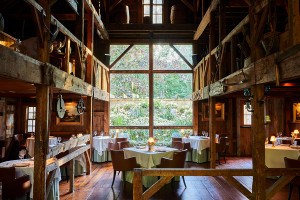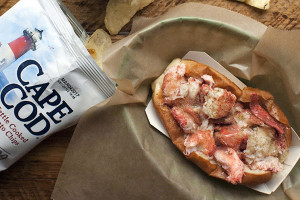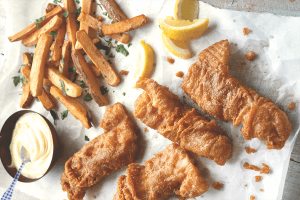Chowder Q&A: Chef Michael Leviton
In the spirit of eating local and sustainable foods, the National Summit for Chef’s Collaborative will be in town from October 3 – October 5 to give chefs and members of the food community a place to share their expertise and ideas. We talked to Lumiere’s Michael Leviton, who is also a board member of the Chef’s Collaborative, about what’s in store for the conference, plus how we can better our eating (and buying) habits.
What is the Chef’s Collaborative?
It’s a national organization for the greater food community, dedicated to the agenda of local and sustainable cuisine.
And how did you become involved?
I moved back to Boston in 1996 — there was already a very active presence and it seemed like a great way to get involved in a local sustainable community. But, having just lived in San Francisco, I remembered how the Monterey Bay Aquarium would hand out wallet cards with a list of safe seafood: According to Monterey Bay and their criteria, there wasn’t anything that we were supposed to be serving here in New England. So, this made me realize that a lot more was needed to be done.
How have you worked to make your own restaurant sustainable?
How have I not? I’ve focused on sourcing and searching for the best local food, and knowing the right questions to ask about seafood and meat. It’s all about trying to find the best possible network of local people trying to do the right things.
Why is having a sustainable restaurant so important?
If we don’t make efforts, our food system is going to get a lot worse. This is a “think globally, act locally” kind of issue — we need to act on a small level in order to impact the way food is raised, grown, and distributed everywhere.
You’ll be on a panel discussing sustainable seafood issues at the National Summit. What’s in store?
A lot of different voices will be heard: scientists, fishermen, the government, distributors, chefs, consumers. There really hasn’t been a time where all of those voices were able to sit down and have a discussion about issues of sustainability that are most salient to them. Getting all of those voices in the room is important because the more voices you have in a room, the more you can learn. And the more you know, the more you can do.
What’s the biggest issue that’s overlooked when it comes to sustainability in the food community?
Sustainability is a continuum — it’s all about getting on that path and making that journey. If everyone can start to get on the path, even if they are just making baby steps, every little bit will help. Making changes can be confusing, and intimidating, but any step in the right direction is a good step.
How can the average citizen benefit from a sustainable food community?
We are producing an abundance of food, but it’s not necessarily sustainable. This is causing a variety of problems: in the ocean, among chickens, mad cow disease, swine flu, E. Coli… the list could go on. All of these issues are related to our food system. We can’t afford to live like this, because the next disaster is just on the horizon.
How can we help?
Shop at farmers’ markets and ask questions about your food, like where it comes from and how it is produced. If you get to know your farmer and what’s in season, then you’ll get food that’s better for you. If everybody thinks globally while acting locally, we can implement necessary changes.



